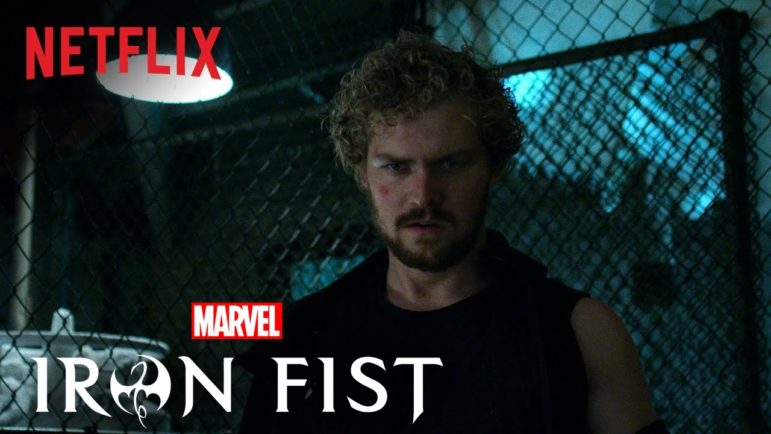

Marvel’s newest Netflix original series “Iron Fist” follows the path of the original comics, a series that was cancelled due to poor sales. Although the show falls on par with the level of action that the Marvel universe is known for, it unfortunately misses the mark with low quality acting and dialogue. In the end, action alone fails to save the pitfalls of “Iron Fist” from dragging down into a major disappointment.
The overall premise of “Iron Fist” concerns main protagonist Danny Rand, who awakes homeless in New York with only vague flashbacks of a previous life. As Danny struggles with his identity, he is revealed to be a naive, quirkily charming martial arts master gifted with a mysterious power called the “Iron Fist.” The true power of the “Iron Fist” is unknown and largely remains a mystery throughout the entire show. As the possessor of this power, Danny must fight through the sinister forces of the multi-billionaire Harold Meachum to reveal the truth behind his purpose and protect the city and those he loves. Although the setting for Marvel primes the scene for an incredibly wide array of exciting possibilities, in execution Marvel’s storytelling and character development falls apart.
The spoken lines of the series mirrors the dialogue of the written comic books to a fault: the lines are choppy and clearly lack the emotional punch intended by the screenwriters. Delivery of heartfelt gratitude between protagonists Danny and friend Colleen seems distant and renders emotional moments with an awkward, sour aftertaste. Even the villains seem apathetic when they pledge to destroy the Iron Fist. The lack of real emotion makes the drama of “Iron Fist” boring and almost unwatchable.
Although “Iron Fist” attempts to convey dramatic irony — like the scene where adversary Harold Meachum is revealed to have knowledge about Danny’s identity as the Iron Fist — the entire flavor of the twist in narrative falls flat. It’s blatantly obvious, and while perhaps clever on scrip, it’s horrible in execution. Viewers are likely to lose patience with the series rapidly when the bad guys literally state “we aren’t the bad guys.”
“Iron Fist” relies heavily on the crutch of character narration to tell their thoughts, and in many cases the narration seems pedantic and redundant. Part of the beauty of good storytelling relies on laying out a narrative in a way that challenges the viewer to think critically and draw their own conclusions. “Iron Fist” completely misses this point.
To its credit, the action and special effects of the Iron Fist superpower are breathtaking. Choreographed fight scenes are among the few interesting moments in the series. Special effects are rare in the series, so when applied to the glowing Iron Fist, they noticeably enhance the perception of power. The intro sequence depicts fluid martial arts combined with comic-like effects and animations that draw the audience into the series. Unfortunately, boredom repels the audience away.
Marvel seems to be attached to city and office scenery for the majority of setting, and it offers little assistance to the bland storytelling. An aerial view of New York or an interior shot of marble conference tables may be impressive once; as a recurring location for action, however, it becomes cumbersome and irrelevant.
If you’re looking for a new superhero show, look elsewhere. The character Iron Fist had its original comic cancelled for a reason, and it seems difficult to foresee this show going much farther than the 13 hours encompassed by season one.





